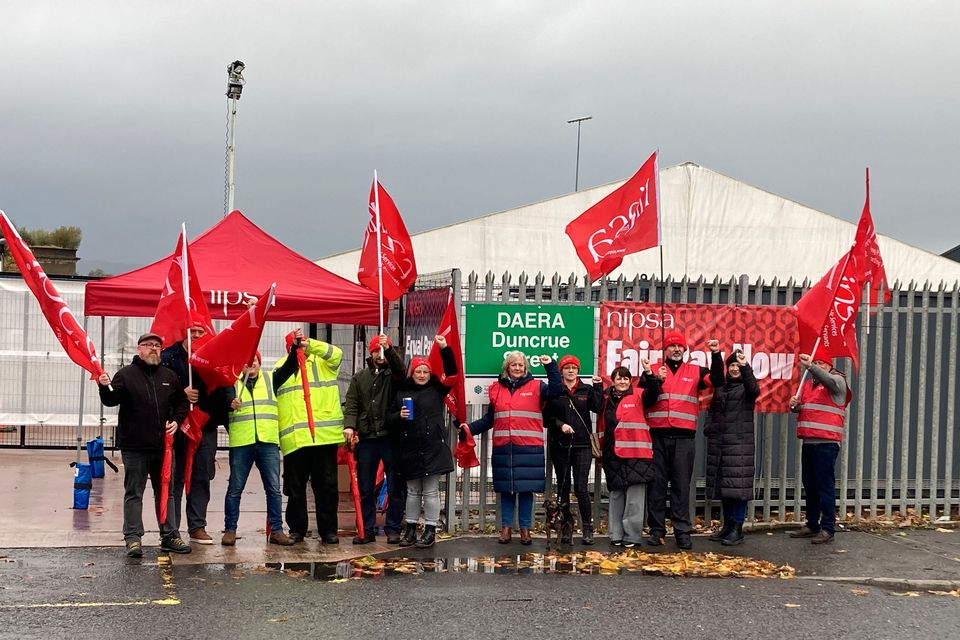Impact of government vets’ strike closely monitored

The impact of a five-day government vets’ strike in Northern Ireland is being closely monitored by the European Union to see the impact on red and green lanes at NI ports
The lanes are part of post-Brexit checks on some goods moving from Britain into NI, introduced under the Windsor Framework.
Vets involved in the industrial action, which ends this week, also monitor abattoirs and no slaughter of cattle, pigs, sheep or poultry can take place in these facilities without an official vet present. The British Meat Processors Association (BMPA) said the strike would spark major issues.
“The first is animal welfare, particularly in the pork sector, as pigs begin to back-up on farms,” Nick Allen, BMPA CEO said.
“The second is a commercial issue as those animals become too big and ‘out of scope’ for supermarket shelves, resulting in farmers unable to sell their livestock. And, because of the numbers of animals involved, it will take months to recover from the loss of those five production days.
“It will mean that meat plants will have to cease operations, causing loss of income for those businesses, and disrupting food supply chains. This is a particular worry as we enter the busiest period of the year in the run up to Christmas when our members are preparing festive products like hams and pigs-in-blankets for the Christmas market.”
The Department of Agriculture, Environment and Rural Affairs said that it will, subject to capacity, “prioritise the slaughter and processing across the intensive livestock sector commencing with poultry, reviewing the situation daily and modifying service provision where capability allows”.
Due to the strike, some goods have had to be routed through Dublin. The EU was asked whether it has any concerns over the strike, given it impacts the post-Brexit checks agreed by the EU and UK.
An EU spokesperson said: “While this is a matter for the UK Government, we are following the situation and are in contact with our UK counterparts.”
The Nipsa trade union, which represents the vets, said the strike is over a “decision to impose a derisory pay award of £552” for civil service staff.
On Wednesday, Nipsa general secretary Carmel Gates said: “Nipsa remains committed to finding an early resolution to this dispute, but for that to happen the Secretary of State must engage in meaningful discussions with us.
“It is clear that the sanctions regime introduced by the government has become a block on normal engagement to resolve industrial action issues. Senior civil servants must be given the authority and the funds to carry out their function and negotiate with trade unions on pay issues.
“I am calling on the Secretary of State to play his part in resolving this dispute.”







